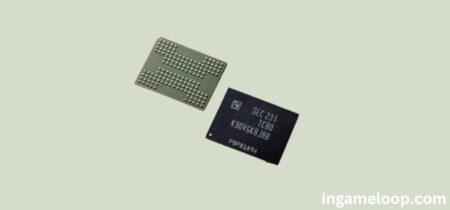
A leap forward in CPU technology, Ampere Computing has unveiled its latest AmpereOne data center CPUs, featuring an astounding 192 cores. However, this impressive leap forward has not come without its challenges, as these high-core-count processors have encountered compatibility issues with the ARM64 Linux kernel, particularly in two-socket server configurations.
Reports from Phoronix reveal that when two of Ampere’s 192-core chips, totaling 384 cores, are installed in a single server, the Linux kernel faces difficulties in providing support. The current limitation of the ARM64 Linux kernel stands at 256 cores, rendering systems with the dual configuration non-compliant. To address this issue, Ampere has submitted a patch to the Linux kernel, proposing an adjustment to the core limit, pushing it up to 512 through a method called “CPUMASK_OFFSTACK.”
The CPUMASK_OFFSTACK method is a strategic approach that enables Linux to surpass the existing 256-core limit without inflating the kernel image’s memory footprint. By allocating free bitmaps for CPU masks from memory, this method offers a solution to the current hurdle, with each core addition contributing a mere 8KB to the kernel image size.
Ampere’s AmpereOne CPUs have set a new industry standard with their unprecedented 192-core count, surpassing even the latest offerings from AMD. While AMD’s highest core count chip peaks at 128 cores, Ampere has taken the lead with a processor that boasts an exceptional 192 cores. This makes Ampere the first CPU manufacturer to grapple with the challenges posed by the ARM64 Linux kernel’s 256-core limitation.
The compatibility issue primarily affects data center servers configured with two of Ampere’s high-core-count chips in a dual-socket setup. Systems with a single 192-core AmpereOne chip remain unaffected by this limitation. Notably, even SMT logical cores (threads) on various systems surpass the 256-figure, underlining the significance of addressing this core count limitation promptly.
AmpereOne is a revolutionary CPU lineup from Ampere, offering models with core counts ranging from 136 to 192 cores. Built on the ARMv8.6+ instruction set and utilizing TSMC’s advanced 5nm node, these CPUs deliver outstanding performance. Key features include dual 128b Vector Units, 2MB of L2 cache per core, a 3 GHz clock speed, an eight-channel DDR5 memory controller, 128 PCIe Gen 5 lanes, and a thermal design power (TDP) ranging from 200 to 350W. These specifications position AmpereOne CPUs as ideal solutions for high-performance data center workloads that can leverage extensive core counts effectively.
While Ampere’s patch proposes a swift resolution to the core count limitation, reports from Phoronix suggest that the process may take some time. In 2021, a similar patch aiming to increase the ARM64 CPU core limit to 512 was rejected by Linux maintainers, citing the absence of available CPU hardware with more than 256 cores at that time. Anticipated timelines suggest that 512-core support may not be incorporated until the release of Linux kernel 6.8, expected in 2024.
It’s crucial to note that the projected timeline for resolution assumes the conventional method of adding 512-core support without leveraging the CPU mask off-stack approach. Although the CPU mask off-stack method is technically supported by the outgoing Linux kernel, its activation by default depends on the decision of Linux maintainers. As Ampere navigates these challenges, the industry watches closely, recognizing the significance of addressing core count limitations in the evolving landscape of data center technologies.
Related:
Corsair’s Dominator Titanium DDR5 Launches at Up to DDR5-8000 Speeds and 192GB Capacity







